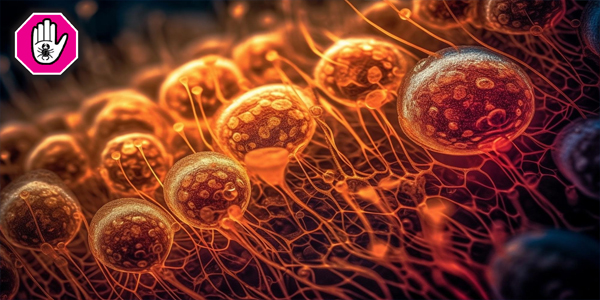Alcohol consumption has long been a part of social and cultural practices worldwide. However, its effects on health, particularly its association with cancer, are serious concerns that need our attention. The World Health Organization (WHO) and other major health institutions have identified a direct link between alcohol consumption and several types of cancer. Let’s delve into how alcohol impacts cancer risk and the importance of mindful consumption.
1. How Alcohol Increases Cancer Risk
When alcohol is metabolized in the body, it turns into a substance called acetaldehyde, a toxic chemical that can damage DNA in cells. DNA damage is a significant factor in cancer development, as it leads to uncontrolled cell division. Additionally, alcohol can impair the body’s ability to absorb essential nutrients, weaken immune function, and increase estrogen levels in the body, which is linked to breast cancer.
2. Types of Cancers Linked to Alcohol Consumption
Studies reveal a clear association between alcohol and several types of cancer. These include:
- Mouth and Throat Cancer: Alcohol irritates the lining of the mouth and throat, making them more vulnerable to cancer. Combined with smoking, the risk for these cancers significantly increases.
- Esophageal Cancer: Regular drinking heightens the chance of esophageal cancer due to cell damage and the potential for acid reflux.
- Liver Cancer: As alcohol is metabolized by the liver, chronic consumption can lead to cirrhosis and liver cancer.
- Breast Cancer: Alcohol consumption can raise estrogen levels, contributing to the risk of breast cancer in women.
- Colorectal Cancer: Long-term alcohol use has been shown to increase the risk of colorectal cancer by promoting DNA damage and impacting gut health.
3. The Role of Drinking Patterns and Quantity
It’s essential to understand that both the quantity of alcohol consumed and drinking patterns play significant roles in cancer risk. Regular, heavy drinking poses a higher cancer risk than moderate or occasional drinking, but even moderate consumption has been linked to an increased risk.
For example, consuming two to three drinks daily can increase the risk of colorectal and esophageal cancers by 20%. Binge drinking, even if infrequent, is particularly damaging due to its impact on the liver and immune function, further elevating cancer risk.
4. Gender Differences in Cancer Risk from Alcohol
Research indicates that women face a higher risk than men when it comes to alcohol-related cancers, especially breast cancer. Women metabolize alcohol differently, and even smaller amounts can increase estrogen levels, which has a direct impact on breast tissue. As a result, even moderate drinking can contribute to cancer risk among women.
5. Combining Alcohol with Smoking – A Dangerous Mix
For individuals who smoke, drinking alcohol poses an even greater risk. Alcohol makes it easier for harmful chemicals from cigarettes to enter the tissues of the mouth, throat, and esophagus. This combination increases the likelihood of developing cancer at a much faster rate than smoking or drinking alone.
6. Is There a “Safe” Level of Drinking?
Current guidelines emphasize that no level of alcohol consumption is entirely risk-free regarding cancer. Although some studies suggest benefits of light to moderate alcohol consumption for heart health, these benefits must be weighed against the cancer risks. Health professionals generally recommend limiting alcohol intake to reduce cancer risks, with the American Cancer Society advising that men consume no more than two drinks per day and women no more than one drink per day.
7. Practical Steps for Reducing Alcohol Consumption
Reducing alcohol intake or quitting altogether can have substantial health benefits. Here are some steps for mindful consumption:
- Limit Intake: Keep track of how much you’re drinking and set limits.
- Choose Alcohol-Free Days: Aim to have several alcohol-free days each week to give your body a break.
- Opt for Non-Alcoholic Alternatives: Today, there are numerous non-alcoholic options that allow you to enjoy social events without compromising health.
- Stay Hydrated: Drinking water between alcoholic drinks helps in controlling overall intake.
- Seek Support: If reducing alcohol feels challenging, consider joining a support group or talking to a healthcare professional.
8. Alcohol and Cancer Survivors
For cancer survivors, reducing alcohol intake is crucial. Alcohol can interfere with recovery and increase the risk of recurrence, particularly for cancers initially linked to alcohol. Survivors are generally encouraged to follow a healthy lifestyle that includes abstaining from or minimizing alcohol consumption to promote overall well-being and reduce future risks.
9. Conclusion: The Importance of Mindful Alcohol Consumption
Awareness of alcohol’s impact on cancer risk empowers individuals to make informed choices. While occasional drinking might be part of social and cultural life, understanding the risks can help in setting healthy boundaries. Reducing or eliminating alcohol can contribute significantly to a healthier, cancer-free future, making it an essential part of cancer prevention strategies. Remember, a mindful approach to alcohol consumption can go a long way in protecting and preserving health.
In conclusion, alcohol’s impact on cancer risk cannot be underestimated. By making informed choices and embracing moderation, we can reduce cancer risks and lead a healthier, more balanced life.


